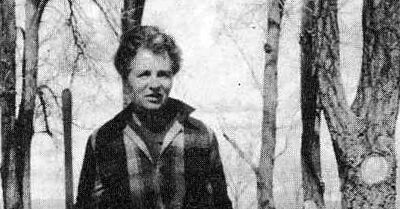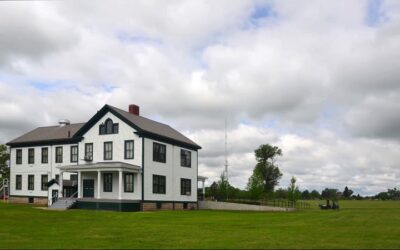This fall, U.S. Senate candidates David Karnes and Bob Kerrey will engage in a series of
debates, some of which are patterned after the famous 1858 contests between Abraham
Lincoln and Stephen Douglas. Those debates have been singled out by historians as perhaps
the most compelling political debates ever held. And although it was an Illinois Senate seat
at stake, the hot issue of the debates was Nebraska territory.
In 1854 the territory had been established by the Kansas-Nebraska Act, a piece of legislation
that Douglas had pushed through Congress. The bill allowed settlers in each territory to
determine for themselves whether slavery would be legal. The new law touched off a storm
of controversy and deadly fighting in Kansas and Nebraska between abolitionists and slaveholders.
Lincoln chose to call Douglas to task for “the Nebraska Act,” and it became the issue in the 1858
campaign. Six times the two debated the merits and implications of the Act.
Lincoln was disturbed by the bloody consequences of Douglas’s doctrine of self determination.
“Could there be a more apt invention to bring about collision and violence on
the slavery question than this Nebraska project is?” he asked.
Lincoln was also disturbed by the constitutional implications of the Act. His questioning
forced Douglas to admit that the people of a territory could exclude slavery prior to the
formation of a State constitution. Douglas’s response was, “Let each state mind its own
business and let its neighbors alone! If we will stand by that principle, then Mr. Lincoln will
find that this great republic can exist forever divided into free and slave states.”
Lincoln’s arguments did not change the Nebraska Act, nor did they win the election for him.
But the impact of the debates was profound. No live television or radio coverage of the
contests was available, but the new technology of shorthand reporting let newspaper readers
all over the country study the debates in unprecedented detail.
There was plenty of detail to study. The debates were set up so that first one contestant spoke
for an hour, then the other orated for ninety minutes. The first speaker then ended with a
thirty minute summation. No wonder these contests are regarded as history’s greatest debates.
Unaided by microphones, Lincoln and Douglas held thousands spellbound for hours.
The Lincoln-Douglas debates focused the national spotlight on Abraham Lincoln and helped
garner him the 1860 Presidential nomination and election. The contests also set the standard
for political debates, a standard that still has meaning 130 years later.



